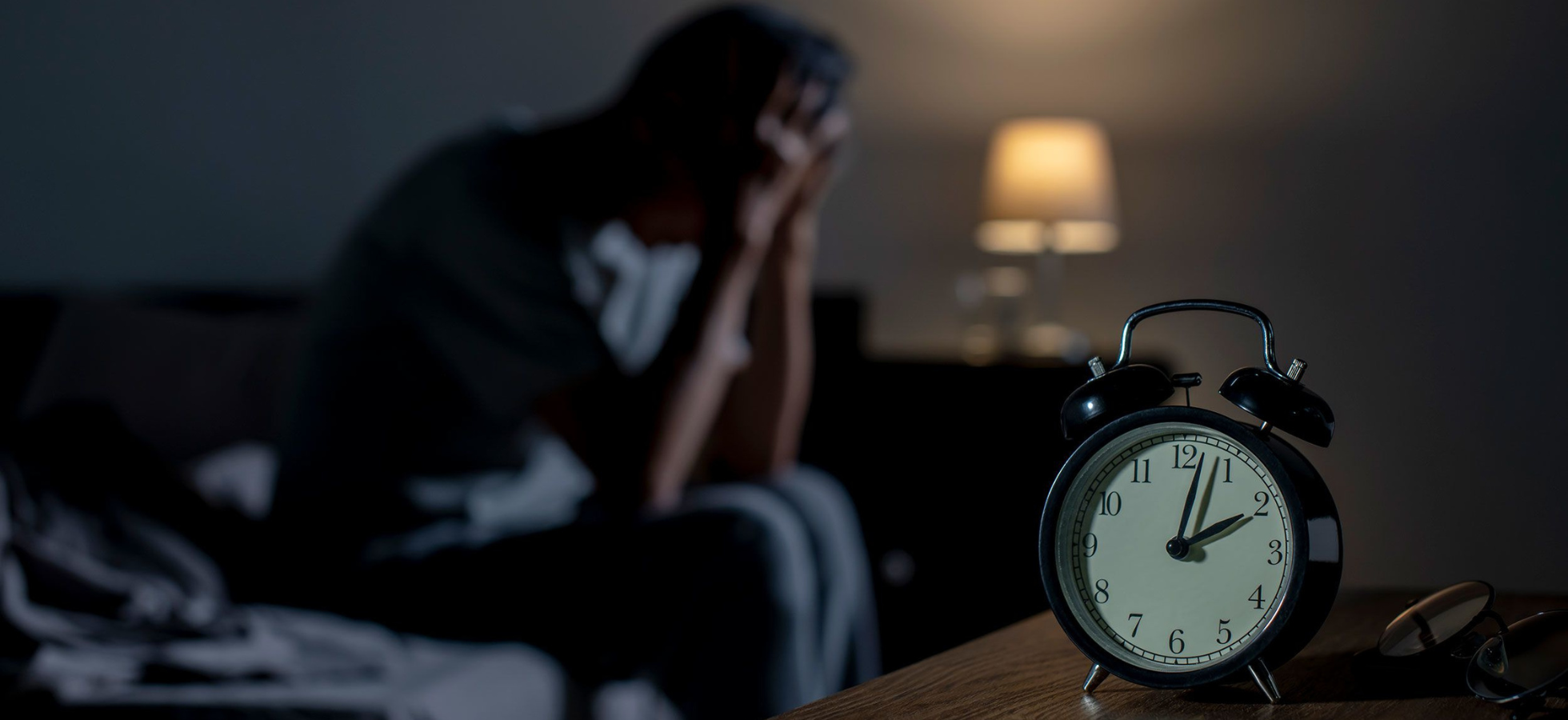Sorry, nothing in cart.
Discover Insomnia: Causes, Effects, and Management
- By admin
- |
- Uncategorized
- |
Definition of insomnia
Insomnia is a common sleep disorder characterized by difficulty falling asleep, staying asleep, or getting good rest even when you have the chance to sleep. People with insomnia often feel tired during the day because they didn’t sleep well at night. They may experience waking up frequently during the night and struggling to return to sleep. Alternatively, they may wake up too early in the morning and be unable to resume sleep.
![]() Certainly, there are superior medications that can assist you in this matter. We recommend medicines such as Zopiclone 10 mg to provide you with adequate relief.
Certainly, there are superior medications that can assist you in this matter. We recommend medicines such as Zopiclone 10 mg to provide you with adequate relief.
Types of Insomnia
Insomnia can be classified into different types based on its duration, causes, and associated factors. Here are the types of insomnia:
1. Acute Insomnia:
Acute insomnia is a sleep disorder where a person experiences difficulty falling asleep, staying asleep, or getting restorative sleep without any underlying medical, psychiatric, or environmental cause.
Characteristics:
It lasts for a short period, usually no more than a few nights or a couple of weeks. and may become chronic if left untreated. Acute insomnia may develop independently or be triggered by factors such as stress, anxiety, or changes in sleep habits.
Symptoms:
Individuals with Acute insomnia often have trouble initiating sleep (difficulty falling asleep at the beginning of the night), maintaining sleep (frequent awakenings during the night), or experiencing non-restorative sleep (feeling unrefreshed despite adequate time in bed).
2. Chronic Insomnia:
Chronic insomnia is a long-term sleep disorder characterized by persistent difficulty falling asleep, staying asleep, or getting restorative sleep that occurs at least three nights per week and lasts for more than three months.
It can significantly impact an individual’s quality of life, daily functioning, and overall well-being.
Causes:
Underlying Medical Conditions: Chronic insomnia may be associated with various medical conditions such as chronic pain, respiratory disorders (e.g., asthma), gastrointestinal disorders (e.g., acid reflux), neurological disorders (e.g., Parkinson’s disease), or hormonal imbalances.
Psychiatric Disorders: Mental health conditions such as depression, anxiety disorders, post-traumatic stress disorder (PTSD), or bipolar disorder can contribute to chronic insomnia.
Lifestyle Factors: Poor sleep habits, irregular sleep schedules, excessive caffeine or alcohol consumption, or substance abuse can perpetuate chronic wakefulness.
Environmental Factors: Noise, light, temperature, or other environmental factors can disrupt sleep and contribute to chronic insomnia.
Stress and Emotional Distress: Chronic stress, unresolved emotional issues, or persistent worries can lead to ongoing sleep difficulties and chronic sleeplessness.
Symptoms:
Individuals with chronic insomnia often experience persistent difficulty falling asleep (sleep onset insomnia), staying asleep (sleep maintenance insomnia), or getting restorative sleep.
They may frequently wake up during the night and struggle to return to sleep, leading to non-restorative sleep and daytime fatigue.
Other symptoms may include irritability, mood disturbances, difficulty concentrating, memory problems, and impaired daytime functioning.
Why Are Zopiclone Pills So Effective In Controlling Insomnia?
The main benefit of Zopiclone tablets is to calm your body. These are excellent sedative-hypnotics. That are essential in insomnia management.
Zopiclone 7.5 mg Pills are produced from Zopiclone, a powerful hypnotic. The medicine is effective at managing acute insomnia.
Other Zopiclone Products Are Here
| Medicines | Tablet | Price | Price/Unit | BuyNow |
| Zopirise 7.5 mg | 140 Tablets | $226 | $226 | Shop Now |
| Zopirise 10 mg | 140 Tablets | $140 | $140 | Shop Now |
Causes of Insomnia
Insomnia can be caused by a variety of factors, ranging from psychological to environmental. Here are some common causes of sleeplessness:
-
Psychological factors
Stress: High levels of stress, whether due to work, relationships, financial issues, or other life events, can disrupt sleep patterns and make it difficult to fall asleep or stay asleep.
Anxiety: Persistent worry, anxiety disorders, or rumination can lead to hyperarousal and difficulty relaxing at bedtime, making it challenging to initiate sleep.
Depression: Depression is often associated with sleep disturbances, including sleeplessness, hypersomnia (excessive daytime sleepiness), or disrupted sleep architecture.
-
Medical conditions
Chronic Pain: Persistent pain from conditions such as arthritis, fibromyalgia, or back problems can interfere with sleep quality and duration, leading to sleeplessness.
Asthma: Respiratory conditions like asthma can cause nighttime coughing, wheezing, or shortness of breath, disrupting sleep and contributing to sleeplessness.
Gastrointestinal Disorders: Digestive issues such as acid reflux, irritable bowel syndrome (IBS), or gastroesophageal reflux disease (GERD) can cause discomfort or pain at night, making it difficult to sleep.
-
Lifestyle factors
Poor Sleep Habits: Irregular sleep schedules, excessive napping, inconsistent bedtime routines, or using electronic devices before bedtime can disrupt the body’s natural sleep-wake cycle and contribute to wakefulness.
Irregular Sleep Schedule: Shift work, jet lag, or frequent changes in sleep patterns can disrupt circadian rhythms and make it challenging to establish a regular sleep schedule.
-
Environmental factors
Noise: Loud or disruptive noises from traffic, neighbors, or snoring partners can disrupt sleep and prevent individuals from falling asleep or staying asleep.
Light: Exposure to bright light, especially blue light emitted by electronic devices, can suppress the production of melatonin, a hormone that regulates sleep-wake cycles, and interfere with the onset of sleep.
Temperature: Uncomfortable temperatures, whether too hot or too cold, can disrupt sleep and make it difficult to stay asleep throughout the night.
Risk Factors
Certainly! Here are some common risk factors associated with insomnia:
Age:
Insomnia can affect individuals of all ages, but the prevalence tends to increase with age. Older adults may experience changes in sleep patterns, including lighter sleep, more frequent awakenings, and decreased total sleep time, which can contribute to sleeplessness.
Gender:
Women are more likely than men to experience sleeplessness. Hormonal changes during menstruation, pregnancy, and menopause, as well as factors such as pregnancy-related discomfort, hot flashes, or hormonal fluctuations, may contribute to sleep disturbances in women.
Genetics:
Genetic factors may play a role in predisposing individuals to insomnia. Studies have shown that insomnia often runs in families, suggesting a genetic component to the disorder. Certain genetic variations may influence sleep regulation, circadian rhythms, or susceptibility to stress and anxiety, contributing to wakefulness risk.
Occupation:
Certain occupations or work schedules may increase the risk of insomnia. Shift work, irregular work hours, night shifts, or demanding work schedules can disrupt the body’s natural sleep-wake cycle and make it challenging to establish a regular sleep routine. High-stress occupations or jobs with significant psychological or emotional demands may also contribute to sleep difficulties.
Medications:
- Nonbenzodiazepine hypnotics such as zopiclone, zolpidem, or eszopiclone may be used to promote sleep initiation and maintenance. These medications act on the central nervous system to induce sleep.
- Medications such as Zopifresh 7.5 mg. may be prescribed for short-term management of chronic insomnia, particularly if behavioral interventions alone are not effective or feasible.
- Benzodiazepines may be prescribed in some cases but are generally avoided due to the risk of tolerance, dependence, and withdrawal.
- Sedating antidepressants such as trazodone or amitriptyline may also be considered for their sleep-promoting effects, particularly in individuals with comorbid depression or anxiety.

